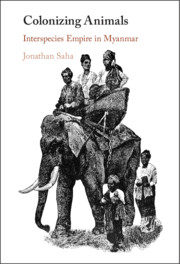Conclusion
Published online by Cambridge University Press: 29 October 2021
Summary
Drawing upon the arguments made throughout the book, in this concluding chapter I argue that as well as negating humanism through a focus on the non-human, animal historians have an imperative to find subjects and actors who can be ‘necessary fictions’ for radical politics. The animal remains important in this but not as a destabilizing spectre haunting humanistic assumptions. The animal can be a radical subject through our recognition that it represents more than just the organism itself. The animal is a synecdoche for the environments that they emerge from and are reproduced within. To include animals in our histories is to value the ecologies that make possible their continued existence in the world. But lest this claim become an empty gesture towards a liberal, inclusive environmental politics, it is a radical position that needs to be attenuated by a critique of the commoditization of life and marginalization of human populations.
Keywords
- Type
- Chapter
- Information
- Colonizing Animals , pp. 185 - 201Publisher: Cambridge University PressPrint publication year: 2021

